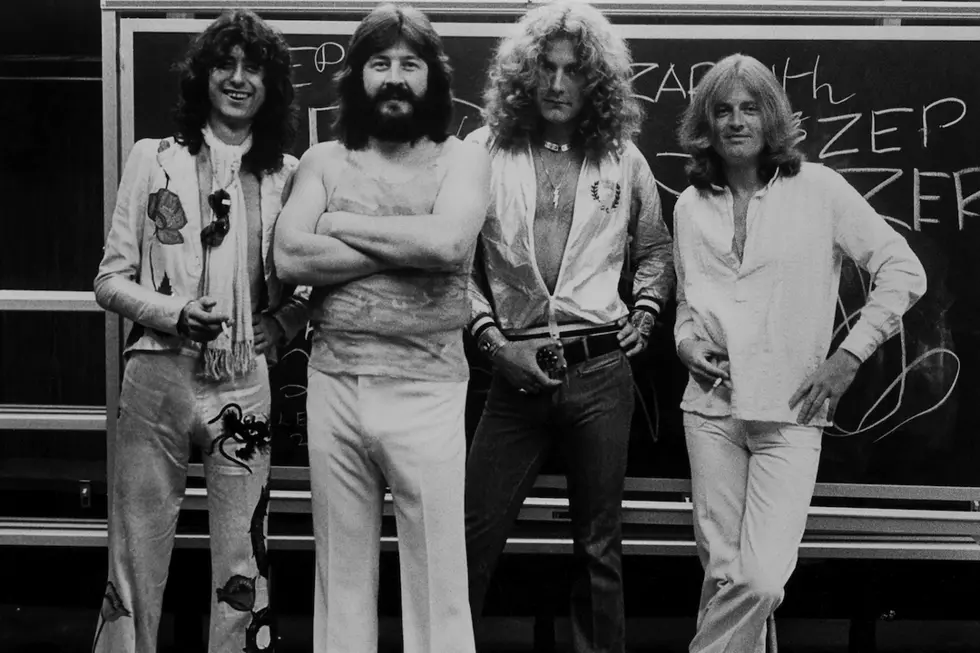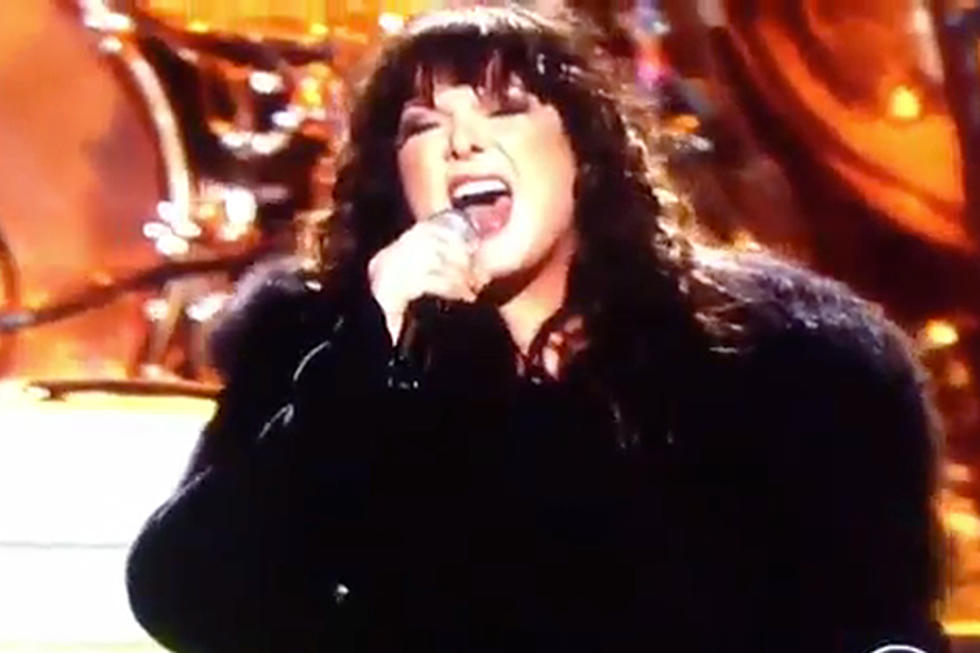Courthouses of the Holy: Everything You Need to Know About the Led Zeppelin ‘Stairway to Heaven’ Trial
Led Zeppelin's classic "Stairway to Heaven" has had its true authorship called into question with a lawsuit accusing Jimmy Page and Robert Plant of lifting a chord progression from deceased Spirit founder Randy California. Here's a timeline of events leading up to the trial.
Jan. 22, 1968: Spirit release their self-titled debut album, including the instrumental "Taurus" — which contains the chord progression that would later sit at the heart of the plagiarism lawsuit against Led Zeppelin.
Nov. 8, 1971: "Stairway to Heaven" makes its recorded debut on the untitled album typically referred to as Led Zeppelin IV.
May 16, 2014: Founding Spirit bassist Mark Andes files the lawsuit through California's estate, seeking to prevent a scheduled reissue of the Led Zeppelin IV and have the songwriting credits for "Stairway to Heaven" amended.
May 25, 2014: Francis Malofiy, a lawyer representing the California estate, is admonished by a judge in a separate case, who describes Malofiy's actions as the "paradigm of bad faith and intentional misconduct" and hints that he might deserve to be disbarred.
May 29, 2014: Page labels the lawsuit "ridiculous."
Sept.r 10, 2014: Top entertainment lawyer Helene Freeman is retained to argue the case on behalf of Led Zeppelin.
Oct. 18, 2014: Zeppelin's attorneys try to have the case thrown out over a question of jurisdiction, arguing that because Page and Plant are "British citizens residing in England, own no property in Pennsylvania and have no contacts with Pennsylvania," they shouldn't be compelled to stand trial. Their efforts are unsuccessful.
May 8, 2015: Over the plaintiff's objections, a change of venue is ordered, moving case proceedings from Philadelphia to Los Angeles.
May 26, 2015: The Led Zeppelin legal team files an official response to the lawsuit, which unsurprisingly disputes the California estate's claims ... while admitting that the members of the band are, in fact, "exceptionally talented."
Jan. 14, 2016: Zeppelin's lawyers tried and failed to have the case dismissed on the grounds that the California trust is allegedly not legally valid.
Feb. 10, 2016: The California estate's attorneys were dealt a setback after requests for a delay in order to allow them further time to analyze the master recordings relevant to the case — and Zeppelin's lawyers added insult to injury by dismissing their claim as "baseless."
Feb. 28, 2016: Page insisted that, while Led Zeppelin at one point shared a concert bill with Spirit — and he had albums by the ban in his record collection — he'd never heard "Taurus," the Spirit song he stood accused of plagiarizing for "Stairway to Heaven."
April 13, 2016: The judge presiding over the case ruled that it would go to trial — over the longstanding objections, and years of maneuvering, by Zeppelin's attorneys.
May 4, 2016: Rumors surfaced that there was a potential deal on the table settling the suit for a $1 ceremonial judgment — and an amended songwriting credit for "Stairway to Heaven" that would list California as one of its composers going forward.
May 24, 2016: Zeppelin's attorneys complained that lawyers for the California estate were "playing to the press" and "tainting the jury pool."
June 14, 2016: Trial proceedings started. Jury selection was completed after seven of the first 14 potential jurors were dismissed, including one who professed his undying love for the music of Led Zeppelin.
June 15, 2016: Page takes the stand (contrary to earlier reports suggesting he and Plant wouldn't be present) during the first day of the trial — during which he revealed the massive size of his music collection and the plaintiff's lawyers risked a mistrial by playing a video that wasn't part of the joint list of exhibits submitted beforehand.
June 16, 2016: Page was asked by Malofiy about the influence of "Chim Chim Cher-ee" from the Disney film Mary Poppins on "Stairway to Heaven." Malofiy repeatedly angered Judge Gary Klausner for straying too far off course with his line of questioning and for the handling of evidence.
June 17, 2016: An economist took the stand and said that Led Zeppelin have earned $58.5 million for their songs over the past few years. And the defense started its case with a music expert who explained that the chord progressions used in both "Stairway to Heaven" and "Taurus" have been around for 300 years. John Paul Jones, who's not named as a defendant in the case, also took the stand for 20 minutes, saying he was present when Page first played him "Stairway" on acoustic guitar.
June 20, 2016: Led Zeppelin's lawyers asked the judge to end the ongoing court case today, arguing that Spirit's attorneys had failed to present paperwork that shows Randy "California" Wolfe even owns the rights to "Taurus."
June 21, 2016: Plant was called to the stand and said he didn't remember being in a club the night Spirit performed (and maybe where Plant had first heard the song). He also said he didn't remember meeting the band's bass player that night, even though the bassist said he did.
June 22, 2016: The jury retired, with the plaintiff's attorney summing up that "in this case, there has been a changing of the facts -- a complete rewrite of the history of how the song was written." He also focused on Page's contradictions between a 1970 interview in which the guitarist said he "enjoyed seeing" Spirit play live and his claims in court that he had never watched them perform.
June 23, 2016: Led Zeppelin win the case. Page and Plant released a statement following the verdict, noting, "We are grateful for the jury's conscientious service and pleased that it has ruled in our favor, putting to rest questions about the origins of 'Stairway to Heaven' and confirming what we have known for 45 years,"
June 24, 2016: Friends and fans reacted to the news of Zeppelin's victory by congratulating Page and Plant, as well as offering their own takes on the trial and verdict. Paul Stanley offered "congrats" to his pal Page, and Joe Walsh weighed in on the descending chord progression at the center of the songs: "Nobody owns these."
July 26, 2016: Michael Skidmore, acting on behalf of Spirit founder Randy California’s estate, files an appeal against the verdict, meaning the case could be headed back to court.
Led Zeppelin Albums Ranked Worst to Best
More From KOOL 101.7








